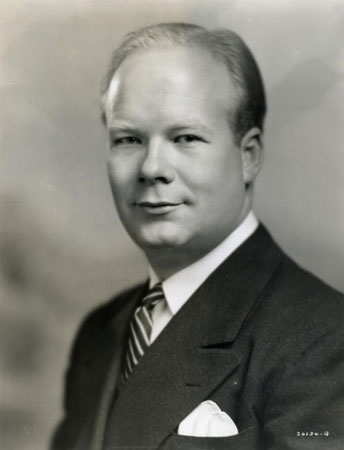
On a fall evening in 1939 former Greenville resident and recognized baritone Mack Harrell made his hometown debut with a German Lieder recital. The event held on Thursday, October 26, 1939 marked the opening of the new $200,000 Greenville Municipal Auditorium and the celebration of Harrell’s recent contract with the Metropolitan Opera of New York City. Note that the date was ninety years ago. The Dallas Morning News called the event the most “brilliant affair in Greenville society in years.” Sponsored by the Co-operative Concert Committee, the recital was attended by everybody who was anybody in the surrounding area.
For the first time in the city’s history, all municipal offices were under the same roof. The fire and police departments along with the new jail joined the mayor, city commissioners, and department heads on the ground floor. On the second floor was the new auditorium, well planned and about to become known for its fine acoustics.
The building was a tribute to a large group of men who came together to apply for a grant and loan from the Federal government under the Public Works Administration (PWA), not to be confused with Works Progress Administration (WPA) created to employ manual laborers during the Great Depression. The PWA served architects, engineers, and professionals with construction skills. All bills were paid on September 27, 1939. This city accepted the new building on October 9th. A little over two weeks later the festivities began.
Mack Harrell’s program consisted of twenty pieces by such composers as Handel, Mozart, Schubert, Wolf, Berber, and Schindler. Harrell began his musical career as a violinist but was encouraged by his wife to focus on his outstanding voice while at Julliard School of Music in New York City. He chose to specialize in German Lieder music.
What makes all of this even more interesting is that the recital occurred less than two months after Nazi Germany led by Adolf Hitler invaded Poland and destroyed her army. World War I ended only twenty- one years earlier; a time of strong anti-German feelings throughout the United States that included boycotts of concerts with German music. Were the same feelings prevalent in the U S in 1939?
Not really. In 1939 the United States was still recovering from the devastating economic disaster that had wrecked the nation for a decade or more. Americans focused more on their own problems than what was happening in Europe. On September 5, 1939, the United States declared its neutrality with regard to European problems. However, sixteen days later the Neutrality was repealed, and the Cash/Carry Plan was adopted that allowed the United States to provide Great Britain and France with arms and food.
Since 1900 public opinion had become an issue for most Western countries. While dictators and monarchy still ruled, they watched the people carefully over their shoulders.
Public Opinion Polls were frequently used here in America. The week of Harrell’s recital only 5% of those polled favored U. S. involvement in the European war militarily. At that time, Americans were satisfied with the Cash/Carry Plan. They could sit back and enjoy Mack Harrell’s recital with no ill feelings for their future foe.
